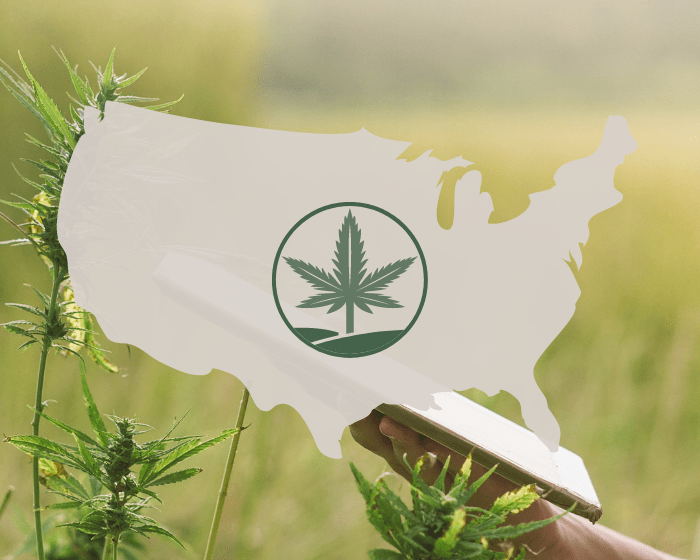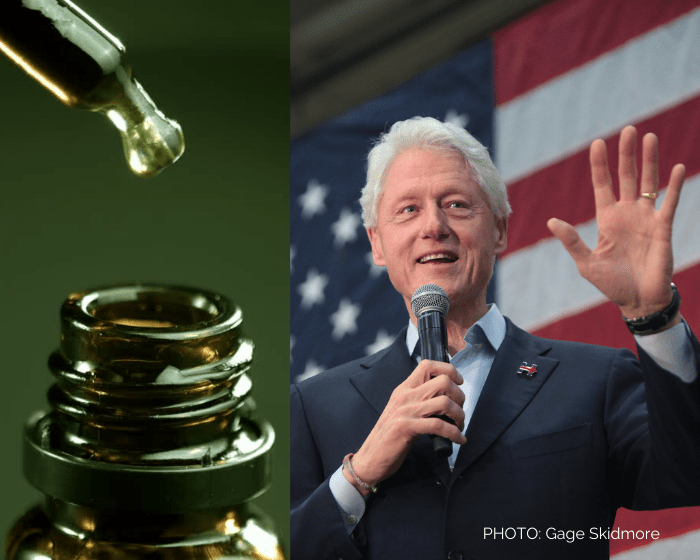
A bill moving through the Virginia General Assembly would bar sales of delta-8 THC until recreational cannabis sales are legal. That could be a year and a half or longer.
As in many states, Virginia’s current hemp laws limit only the most well-known tetrahydrocannabinol, delta-9 THC (until recently known simply as THC).
What's Delta-8?
The delta-8 isomer, which is sold in various forms from gummies to vapes, is extracted from hemp as CBD, then chemically converted into THC. It also occurs naturally in cannabis at low levels.
In states where prohibition stands, delta-8 has become popular because it’s legal by the letter of federal law, which limits delta-9 THC specifically. And although a growing number of states are regulating or banning delta-8, it's still technically legal in many states that use language from the 2018 farm bill in their hemp legislation.
Virginia Lawmakers Move Toward Regulation
In Virginia, where delta-8 products are available in gas stations and specialty shops, lawmakers are taking aim to bring the isomer under regulation.
Introduced by Sen. Emmett Hanger (R), SB 591 would modify the definition of “marijuana” to include any substance containing a total tetrahydrocannabinol concentration above 0.3 percent, not just delta-9 THC.
The bill would also require products to be tested for potency and purity, and labeled accordingly. Sales would be limited to licensed retailers and buyers 21 and up — when THC sales are legal in the state, that is.
When exactly that will be remains unclear. Lawmakers passed legislation last year allowing adults to possess and grow THC-rich cannabis, but they haven’t yet approved a framework for recreational sales. A recent attempt passed in the Senate but was voted down by a House subcommittee, making it unlikely that recreational sales will begin sooner than mid to late 2023, according to the Virginia Mercury.
Until then, only medical dispensaries are permitted to sell cannabis.
The Senate passed Sen. Hanger's bill unanimously in mid February. By the end of February, a House committee had advanced bill. There has been no substantial action since.
If the legislation passes and delta-8 regulations go into effect July 1, some stores would likely be forced to close, reports the Virginia new station WAVY.
Managers from THE Dispensary, a retail chain selling delta-8 and delta-10 products in Richmond and Chesterfield, told the station they agree that the industry needs regulation, but resist the idea of a bill that would bar sales until the recreational market opens.
Store managers said they already adhere to the bill’s standards, with ID checks at the door and third party testing. The bill, they said, would put the store out of business and push their customers toward the black market.
Sen. Hanger told the station lawmakers wanted to get delta-8 out of the gray market.
“What we’re trying to do is say these products are unacceptable just in your traditional stores along the street,”he said. “There will be a mechanism where they can be sold in a regulated, licensed market.”
The delta-8 products available in Virginia are often mislabeled, according to a report from the Virginia Mercury. Lab tests of 66 products from around the state found:
- 1 was accurately labeled
- 1 was a delta-9 THC product apparently manufactured in a state where sales are legal with a delta-8 sticker placed on the packaging
- 4 had more THC than the listed on the label
- 19 had less THC than listed
- 22 claimed to contain THC but contained almost no cannabinoids at all
- 25 contained illegal amounts of delta-9 THC
And WAVY News reported that poison centers are reporting an increase in calls related to delta-8. One involved a 2 year old who ate a THC-infused cereal bar. Testing showed that the bar, which had been labeled as a delta-8 product, actually contained delta-9 THC.
A Growing Number of States and Congress Are Considering Bans
Many states have passed laws regulating delta-8 THC over the past year, and at least 17 states have banned it. Lawmakers in other states, including Kentucky, Washington and Minnesota, are considering bans this legislative session.
And a bill introduced to Congress in February, the Hemp Advancement Act, could make hemp-derived THC illegal nationwide. Much like Sen. Hangar’s bill in Virginia, the Hemp Advancement Act proposes revising language from the 2018 Farm Bill that put concentration limits on delta-9 THC specifically. The bill specifies that the total THC limit for finished hemp products would remain 0.3 percent. If passed, this would effectively make delta-8 and delta-10 products in their current form illegal across the nation.








































